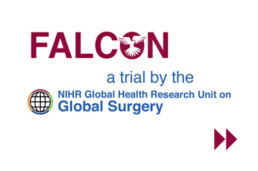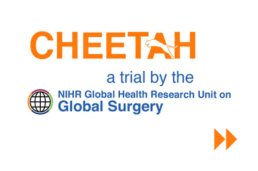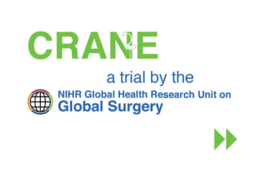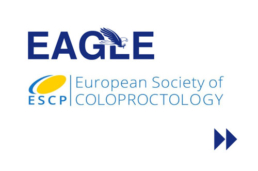The MAGPIES Study
MAGPIES will calculate the global surgery case-mix stratified by body region, age and urgency of surgery. This will be the first study collecting data directed to achieve this and will allow future modelling studies relevant to inform specific needs in each country.
Improving surgical outcomes through collaborative research
The MAGPIES Study – Mapping Global Surgery.
- Surgical volume is one of the Lancet Commission on Global Surgery indicators to measure access to surgery.
- Previous studies have estimated the overall surgical volume in each country, but case mix is not known.
- Breakdown of procedures by patient age, surgical specialty, and urgency of surgery is essential to map surgery being provided to population needs .
- Best previous estimate from ‘surgical outcomes studies’, where data is 10 years old, there is limited granularity and by performing a secondary analysis, there are methodological limitations.
- Global surgical case-mix can be used to inform future global modelling studies: unmet need for cancer surgery, postoperative mortality, catastrophic health expenditure on surgery and global workforce planning.
The aim of this study is to estimate the global surgery case mix with sufficient granularity to determine the number of operations completed in each country stratified by patient age, surgical specialty, and urgency of surgery.
- MAGPIES will aggregate administrative data relating to surgical volume. All hospitals from all countries are eligible to take part.
- Disseminated via contacts from the National Institute for Health and Care Research (NIHR) Global Surgery unit.
- Number of ALL operations during 14 consecutive days, between 15th January – 28th February 2024.
- Data collection will be stratified by age (adults versus children), five broad body regions (cardio-vascular- thoracic, general, musculoskeletal, and skin, head and neck and obstetrics), and urgency of surgery (elective, emergency).
For hospitals with 30 or fewer operating rooms, the team will have up to a maximum of 3 collaborators plus the hospital lead. For hospitals with more than 30 operating rooms, one more member can be added per each 10 operating rooms.
Check here if your hospital already has a hospital lead in place, contact them if you want to join the study.
If your hospital does not have a hospital lead, you can list yourself to be one, follow this link and fill the form please.
- Both day case surgeries and inpatient surgeries are included.
- Eligible procedures performed with and without general anaesthetic are included.
- Endoscopic procedures (diagnostic or therapeutic) that are usually performed in an operating theatre by a surgeon are included.
- Interventional radiology procedures are excluded.
- Endoscopic procedures that are usually performed outside of an operating theatre (e.g. in an endoscopy suite) or by a non-surgeon are excluded.
- Minor procedures listed here should not be counted.
Study Protocol, please click here
Case Report Form (CRF) in Excel, to download, click here
Inclusion and Exclusion criteria, click here
Supporting letter, click here
Ethics approval from University of Birmingham, click here
Visual Abstract, click here
Documents in French:
Protocol click here.
Inclusion and Exclusion click here.
Data Collection click here.
Documents in Spanish
Protocol – click here
If you have any questions, please email magpies.gsu@gmail.com
Q: How can a hospital take part in MAGPIE?
To participate in the study, a hospital lead must be appointed.
First, to join the study, check if your hospital has an appointed lead. If there is not one, and you are part of a local surgical or anaesthetic team led by a resident or consultant, you can register as the hospital lead. To do so, visit https://redcap.link/magpies_leads and complete the registration. Once registered, you can add collaborators from your hospital to the team based on the number of operating theatres and the size of your facility.
Q: When does data collection start?
The data collection for the study is a 14-day continuous period chosen by each participating hospital. This period falls within the overall study window, from 15 January 2024 to 28 February 2024. Each hospital team can select 14 consecutive days within this timeframe to collect data. This flexibility allows hospitals to choose a period that best fits their operational schedule while ensuring consistency across the study. The deadline to upload data will be 15th March 2024.
Q: Are Colonoscopies and Endoscopies Included in the study?
No, colonoscopies and endoscopies are not included in the data collection for the Global Surgery Case Mix study. The study focuses on operations performed by a surgeon in an operating theatre. Minor procedures, such as colonoscopies and endoscopies, are typically excluded, as detailed in the study’s protocol (please refer to the protocol for the list of included and excluded procedures).
Q: What is Included in each Body Region for the MAGPIE Study?
Each body region includes group of systems as outlined in the study protocol. For a detailed list of procedures excluded under each body region, please refer to Appendix 2 of the study protocol.
Q: How to Enter Data?
Hospital leads will receive a specific link to a RedCap survey where they can enter the required data. The data should be filled in as per the categories provided in the attached table, which includes:
Number of operations performed, divided by age group (adults aged 18+ and children aged 0-17).
Classification by type of surgery (Elective or Emergency).
Distribution across different surgical specialties such as Head and Neck, Cardiovascular and Thoracic, General surgery, Musculo-skeletal and Skin, and Obstetrics.
Q: How will we have access to the RedCap link to enter the data collected?
A specific RedCap link will be provided to the hospital lead to enter the data collected. Collaborators can collect the data on paper during their respective data collection period, after which the hospital lead will be responsible for entering it into the system using the provided RedCap link. This ensures a centralized and organized data entry process. The excel spreadsheet available in the website is also helpful to sum all the operations that were counted for each day.
Q: What Should Be Done Regarding Ongoing Surgeries in the First and Last Minutes of Data Collection?
We recommend to count surgeries where ‘knife to skin’ / time of beginning of operation is during the 14 day period selected. Therefore any ongoing operations at midnight of day 1, should NOT be counted, because they started before 00:00. The same applies to the last day of data collection, if an operation started before 23:59 on day 14, it should be included and counted, even if it ends after day 14.
Q: Should We Collect Data on All Surgeries or Just Those Performed by Our Team?
All surgeries performed in the hospital should be collected to ensure data completeness and to avoid selection bias. It is essential to capture every surgical procedure within the data collection period, regardless of which team performs the surgery.
Q: How Many Forms Need to Be Entered for the Global Surgery Case Mix Study?
Each hospital must enter only one form covering the selected 14-day data collection period. To maintain the integrity of the study and avoid duplication, we will not accept more than one form from any hospital. Exceptions to this need to be agreed with the study team beforehand.
Q: What is the Maximum Number of Team Members Allowed in the Study?
The maximum number of team members allowed to participate in the study from each hospital depends on the number of operating rooms covered during the data collection period. Here is the breakdown:
For hospitals with 1-30 operating rooms: one hospital lead and up to 3 collaborators.
For hospitals with 31-40 operating rooms: one hospital lead and up to 4 collaborators.
For hospitals with 41-50 operating rooms: one hospital lead and up to 5 collaborators.
For hospitals with 51-60 operating rooms: one hospital lead and up to 6 collaborators.
For hospitals with 61-70 operating rooms: one hospital lead and up to 7 collaborators.
For hospitals with 71-80 operating rooms: one hospital lead and up to 8 collaborators.
Q: How Will Authorship Be Recognised?
Authorship will be recognized following the National Research Collaborative Authorship guidelines. Research outputs from the study will be listed under the single corporate authorship of NIHR Global Surgery Unit (Examples: https://pubmed.ncbi.nlm.nih.gov/33485461/). All collaborators and hospital leads will be credited as PubMed-citable collaborators based on their roles fulfilled in the study.
The hospital lead is responsible for collecting and providing all participants’ email addresses and ORCID iDs to compile the list for group authorship. The hospital lead must ensure the accuracy of this information, as it is necessary for proper recognition in the study’s publications.
Q: When Does Data Entry Need to Be Completed?
All data entry for the Global Surgery Case Mix Study must be completed by 15th March 2024. It is important for hospital leads to adhere to this deadline to ensure that all collected data is accounted for in the study’s final analysis.
Q: What is the approval file you asked us to upload?
Data should not be collected or uploaded until you have approval from the relevant authority. If you have provisional permission to collect data that is acceptable and you can upload evidence of this. If you have been advised that specific local approval is not needed for this project because it is very low risk or because it has UK approval then that is also OK and you can upload evidence of this. However if you have not had any type of approval to collect and/or submit data then you should not submit – that’s to protect both you and the study.





